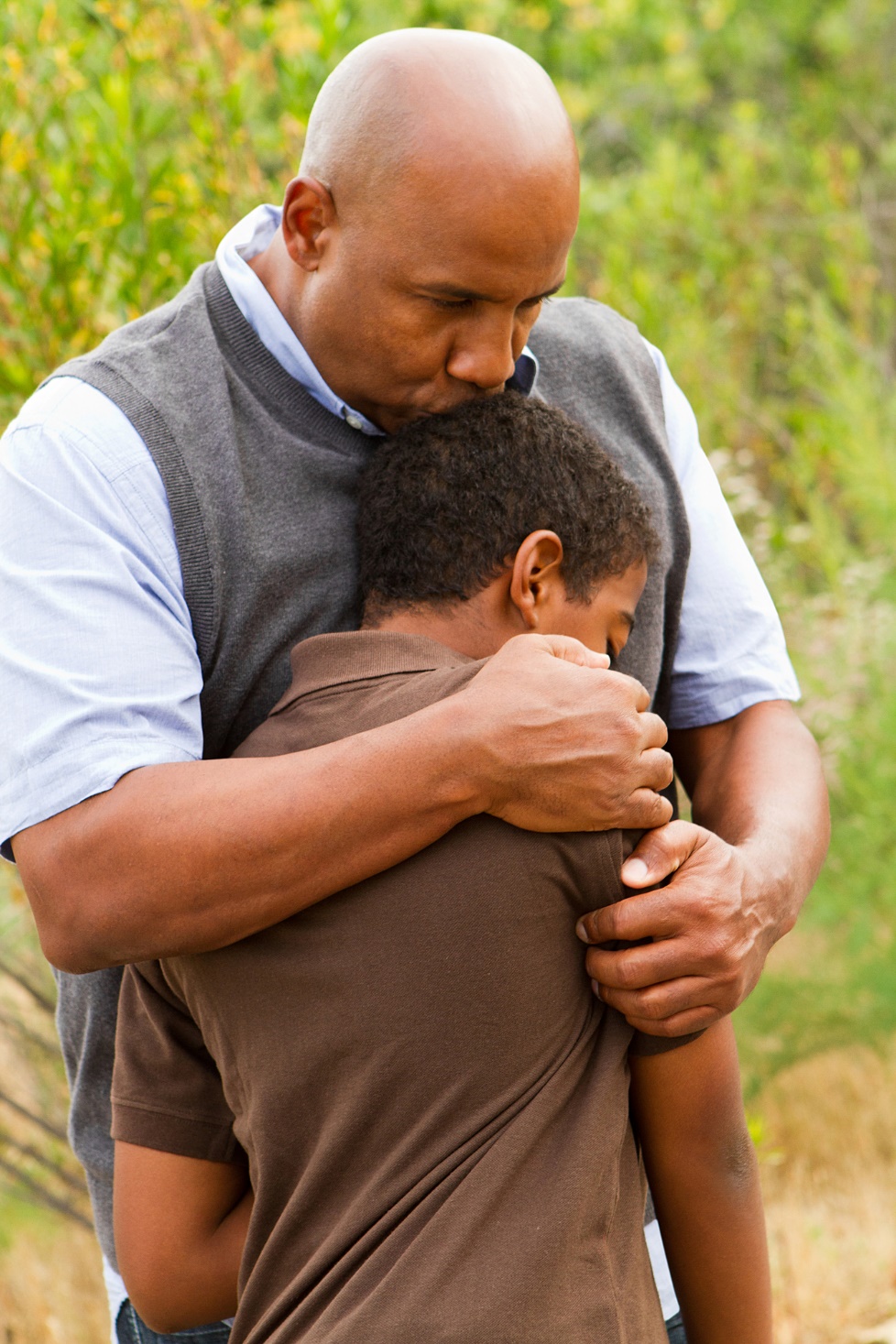BP109

She was only thirteen when she died. By all accounts, she was a happy girl with many friends. She laughed easily and appeared to love life. But death came when her life was just beginning . . .
I moved away from my hometown decades ago. I hardly ever return now except for rare events like funerals and possibly a class reunion every fifteen years or so. Occasionally, I peek into current events back at the old stomping grounds through the local newspaper that comes to me thanks to a gifted subscription from my sister. I do not read the paper often, however, as evidenced by the pile of newspapers on my nightstand that grows higher every week. It is difficult to make time for the town of my past when the city of my present life is so enveloping.
Today was one of those rare times when I grabbed three of the weekly newspapers from the stack of forty to catch up a bit on what was happening back “home”. The second paper is the one that brought Tammy to my attention, someone I never would have known existed if I had not scanned that late May edition of the paper.
My eyes happened to fall on an article describing how the graduating high school seniors were doing work projects around town, a tradition of giving to the place where they grew up before moving on to the next chapter of their lives whether it be college, jobs, or other parts of the country far removed from their rural Minnesota roots. The article described how some of the seniors traveled to a farm outside of town to tend to a memory garden for one of their classmates who had died five years earlier—Tammy. So sadly, her life had abruptly stopped at chapter thirteen while all her living friends were on seventeen or eighteen.
Unbelievably, five winters with their cold blankets of snow had already covered her grave while her peers played softball, celebrated Christmases with their families, attended pep fests, and went to Mexico on vacation.
As I read the article about the senior projects, my curiosity was piqued. After all, it is not common for someone so young to die. I Googled her name and found an entry from a community chat site five years ago that included an announcement from Tammy’s older brother. He wrote, “Thursday . . . my little sister took her own life. My heart is broken. I have no answers only questions. She had just gotten back from . . . and she had the time of her life and we had just celebrated her 13th birthday. Those who know me know I loved my sister more than anything in the world.”
I groaned for this girl and her family, and I remembered the account of Jesus hearing Mary weeping for her brother, Lazarus, who had died. John 11:33 says, “He [Jesus] was deeply moved in His spirit and greatly troubled” as He witnessed the deep grief of Mary and the other people around her. Later, Jesus was “deeply moved” a second time when He came to the tomb where His friend’s body had been placed.
I also remembered the words from Romans 8: 22ff: “For we know that the whole creation has been groaning together in the pains of childbirth until now. And not only the creation, but we ourselves, who have the firstfruits of the Spirit, groan inwardly as we wait eagerly for adoption as sons, the redemption of our bodies.”

How true it is that for believers in the eternal God, this world is not our home. We live in a broken, fallen, sinful world that is filled with divorce, separation, dying, death, separation, annihilation of the human spirit, and yes, suicide. Jesus came to right all these things and qualify us to share in the inheritance of saints in light and to give us citizenship in heaven with Him.
But until the day comes when we leave this world through the doorway of death (or via the second coming of our Savior), we remain castaways on this temporary island of exile. We are stranded in an isolated place, but we are not all alone. He has come for us to bring us home. So, we groan and we rejoice. We weep and we are thankful.
Some days we weep a lot. Sometimes weeping and groaning may last for days, months, years, even decades. If you have lost someone like Tammy, or a sibling, a spouse, a parent, a friend—life will never be the same again. As I often say, you may walk with a limp for the rest of your days.
Certainly, you will be living in an altered reality. Death does that. It tilts our world. It reminds us of our accursed mortality and the cruelty of goodbyes. But most of all, hopefully, death opens our eyes to eternity and alerts us that this island is not our final resting place. There is more to come. Much more. The best.
So, what about Tammy and her suicide?
We could go off on so many different tangents here. We could talk about the same topic that the Jews murmured about at the tomb of Lazarus, namely, “Could not he who opened the eyes of the blind man also have kept this man from dying?” In other words, we could address why bad things including the death of Tammy happen in a world created by a good God.
We could also discuss family systems or addictions or brain neurotransmitters that contribute to depression or when to recommend medications. But in this post, we will briefly focus on suicide in the old and in the young, the demographic groups with some of the highest incidences of suicide.
First, why are older individuals (roughly 65 +) susceptible to suicide? Three reasons are a lack of purpose, aloneness, and regrets. The social psychologist, Erik Erikson, refers to this final stage of life as the tension between integrity or despair. By integrity, Erikson means an overall sense of fulfillment, satisfaction, accomplishment. People over age 65 who have this sense of integrity look at their current life and/or past life and experience a sense of peace, success, wholeness, wisdom, and few regrets. They believe they have lived their lives well.
For Erikson, the opposite of integrity is despair. Older individuals will experience despair if they look at their current life or look back on their prior years and experience depression, hopelessness, regret, bitterness, self-anger, a rumination over what they have done or what they have not done. They might be afflicted with the torturous belief that their life was wasted.

How devastating to arrive at the last few minutes of the fourth quarter of the one-and-done game of life and realize you’re going to be crushed 85-0 (even worse than the Minnesota Gopher football loss to Nebraska on September 17, 1983 by the final score of 84-13). Yes, how devastating. After all, we’re talking about a life here, not a meaningless football game.
For some elderly individuals who are approaching the end of their lifetime, their spouse has died or they never married (see Erikson’s sixth stage of Intimacy v. Isolation); they might be alienated from children and friends and wonder how they fit into the world (Stage 5: Identity v. Confusion); their health is poor and they are increasingly dependent on others for their care (Stage 2: Autonomy v. Shame and Doubt); they no longer have a feeling of contributing to the world around them (Stage 4: Industry v. Inferiority); they have not generated much during their years in this world that they can pass down to their family and others as a legacy that will outlive them (Stage 7: Generativity v. Stagnation); they might even feel like they have never been loved by another person (Stage 1: Trust v. Mistrust).
These individuals who feel that they failed to get the developmental stages of life right–that they didn’t get a passing grade on the most critical exam of their lifetime–are prime candidates for suicide, especially if they are alone and turn to alcohol to numb their pain and regret. They don’t feel loved by others, and they certainly don’t feel loved by themselves. No wonder, then, that the elderly (particularly men aged 75 years and older) suicide more often than any other age group.
How many elderly individuals are slowly sinking into the darkness of despair, existing alone in their homes or in senior residents where they feel forgotten? Death, even by suicide, will be welcomed by many of these people if only to escape the pain of aloneness and the seemingly irreversible suffering inflicted by regrets.
What is the hope for these hopeless, lonely, regretful, unloved individuals? In my mind, it is a no-brainer: the unconditional love of God communicated through His presence, His word, and His people (who remember, visit, and minister to those who are forgotten by the world).
This love embraces the elderly with the message that value, performance, wealth, and strong bodies are not what makes them lovable; rather, it is the truth that they are image bearers of the eternal God who does not wish any to perish but sent His Son to open the door for adoption into His forever family. They have a home waiting for them where they will appear with Jesus in glory (Colossians 3:4) and with glorious bodies like His (Philippians 3:21).
Do you see past the broken body of the elderly and see the glory within them? Some of these saints bound for glory have walked with Jesus for eight decades!
My message to the elderly–in fact, to everyone–is that this world is the launch pad to eternity. There is a countdown that eventually ends in ignition and blastoff (death and life after death). We all have some say in what trajectory our lives will take after we thrust out of this world—toward Him or away from Him. So, choose very carefully what you will treasure above everything else.
And, with all your strength, cry out for help if you are depressed and alone. Be like the blind beggar along the side of the road who got the attention of those around him including Jesus: As he drew near to Jericho, a blind man was sitting by the roadside begging. And hearing a crowd going by, he inquired what this meant. They told him, “Jesus of Nazareth is passing by.” And he cried out, “Jesus, Son of David, have mercy on me!” And those who were in front rebuked him, telling him to be silent. But he cried out all the more, “Son of David, have mercy on me!” And Jesus stopped and commanded him to be brought to him ~ Luke 18:35ff.

What about Tammy? What about the younger age group (10-14 years old, for example) that experiences suicide as the number two cause of death at that tender age?
Why is someone like Tammy vulnerable to killing her own body when all of life seems to be ahead of her? I have no idea what made Tammy, specifically, vulnerable to suicide, but her age group is susceptible to suicide due to a number of factors. There are probably fifty variables, but I will only mention a few here.
Here are several: the unstable identity of tweens that may lead to deep depression when they feel alone and different; the emphasis on appearance in our culture; social media that represents for many youth a dangerous venue for comparison and bullying; the lies that Satan plants in the heart of every child (for example, people seem to be kind and loving to you but they are actually being nice to you out of pity because of your pathetic self); the impulsivity of the young brain with its undeveloped frontal lobes; copycat suicides.
Another variable is rigid youthful cognitions such as There is something wrong with me; I don’t know what it is but I’ll never get better. A final factor to be mentioned here is the frequent use of alcohol and drugs by tweens that seem to offer fleeting relief to pain and loneliness but offer no long-term gains.
In fact, as Scott Peck says, faulty coping (such as drugs and alcohol) will only cause further problems that will piggyback on the original problem and eventually bury the teen under a heavy pile of powerlessness and hopelessness.
“The substitute itself ultimately becomes more painful than the legitimate suffering it was designed to avoid” ~ The Road Less Traveled, p. 17.
So, what can be done to help the Tammys of the world? Psychologically, early intervention is critical, possibly meds, substance abuse treatment as needed, and maybe group therapy with other struggling teens that is led by several strong, wise professionals.
Relationally, Tammy needs to have a strong support system composed of people who know her true self instead of her outward smiling and laughing self that masks the tears on the inside. She may need family therapy to detect dysfunction and improve family functioning and communication.
As a brief aside, I have encountered many teens who have bonded well with animals but do not know how to relate to people, not really. They may seem connected, but if you explore deep enough, you discover that these teens and preteens do not know how to be emotionally intimate with others and often feel that they are on the outside of their peers looking in. They experience a deep sense of not belonging, being different than others, broken, weird, alien. Be sure to feel around the rim of these young souls and hear the cry of their heart! You may be the only one who stands between them and suicide.
When I think of a spiritual application for someone like Tammy, I am reminded of the story of Elijah where he stood up to the 400 prophets of Baal and defeated them. Immediately after such an amazing, victorious high, the wicked queen Jezebel sent a messenger to Elijah (not on social media but in person) informing him that she planned violence against him unto death. The prophet who had just experienced God’s deliverance in the face of staggering opposition became afraid and ran for his life. Let’s pick up the story in 1 Kings 19:

Elijah went a day’s journey into the wilderness and came and sat down under a broom tree. And he asked that he might die, saying, “It is enough; now, O LORD, take away my life, for I am no better than my fathers.” And he lay down and slept under a broom tree. And behold, an angel touched him and said to him, “Arise and eat.” And he looked, and behold, there was at his head a cake baked on hot stones and a jar of water. And he ate and drank and lay down again. And the angel of the LORD came again a second time and touched him and said, “Arise and eat, for the journey is too great for you.” And he arose and ate and drank, and went in the strength of that food forty days and forty nights to Horeb, the mount of God.
Elijah, possibly like many teens, felt defeated, depressed, bad, and most likely ashamed for being such a weak coward. He probably felt that he had failed God and would be shunned by Him. The prophet wanted to die. He maybe did not think about taking his life with his own hand, but he certainly wanted God to kill him. Not suicide by cop but suicide by God.
Amazingly, God appeared through the person of an angel and did not reprimand his deeply discouraged child but touched him and invited him to eat food that had been prepared for him.
After eating, Elijah lay down again because he was still weak from physical fatigue and depression. Did God then come and say, “Get up you lazy prophet. After everything I have done for you, this is how you treat me? You’re nothing but a selfish, weak, stupid excuse for a human being.”
No, quite the opposite. In an amazing act of mercy, God sent the angel to Elijah a second time with food and drink. And what did the angel say? “Arise and eat, for the journey is too great for you.”
What gentle presence! What comforting love! How good that Jesus came to live in our skin and know our weaknesses and temptations so He could be a merciful and faithful high priest to us!
Be sure to bring the presence of the merciful and loving God to someone like Tammy because she undoubtedly is getting beat up on the inside where no one hears the voices that condemn her without mercy. Jesus comes with zero condemnation for His children but with compassion and sympathy. Love. Patience. Kindness. An invitation to rest and then journey toward Him.
Never forget the words of Hebrews 4 quoted below. If appropriate in the moment, share them with her. At a minimum, be someone who brings Jesus’ mercy to her–or to him–a messenger of Christ with skin on.

“Since then we have a great high priest who has passed through the heavens, Jesus, the Son of God, let us hold fast our confession. For we do not have a high priest who is unable to sympathize with our weaknesses, but one who in every respect has been tempted as we are, yet without sin. Let us then with confidence draw near to the throne of grace, that we may receive mercy and find grace to help in time of need ~ 14-16
So, move toward those who are suffering mentally. Both the old and the young have been born under the severe condemnation hard-wired into a fallen world and that often is only intensified by their experience during the years of their lives.
Love them. Be Jesus to them. Pursue them. Listen not just to their words but to their eyes and their hearts. Go well out of your way for them. You will save lives from death.
Don’t forget–it is only humans that you can bring with you to heaven. Everything else is left behind in the end. Let nothing besides God Himself be more important to you than Tammy the teen and Arnold the senior citizen.
Then you will be fulfilling your calling as an obedient servant who lives out the two Great Commandments. Then you can die with no regrets, only joy.
You do remember, right? It’s all about sacrificial love and The Power of Presence. Nothing else matters. Not really.
For God so loved the world, that He gave his only Son, that whoever believes in Him should not perish but have eternal life ~ John 3:16
